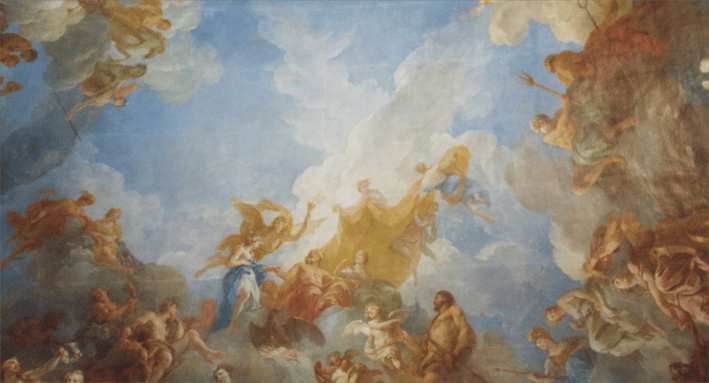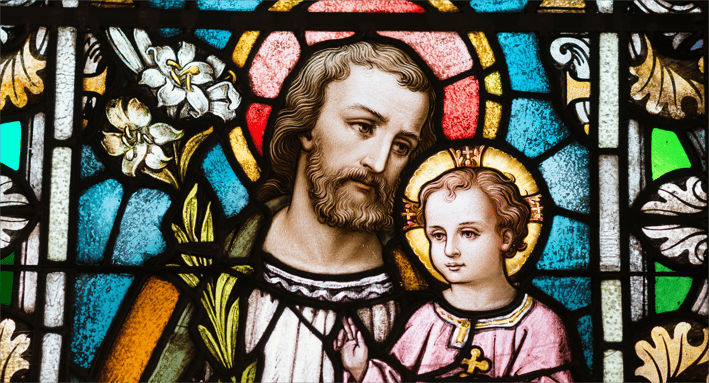“Oh, the depth of the riches both of the wisdom and knowledge of God! How unsearchable are His judgments and unfathomable His ways! For who has known the mind of the Lord, or who became His counselor? ... For from Him and through Him and to Him are all things. To Him be the glory forever. Amen” (Rom 11:33–34, 36). That profound doxology ends the first section of Romans, calling us to our knees in worship and praise, exalting the Lord for His majestic knowledge, transcendent omniscience, and perfect wisdom. It’s a doxology of comfort for the believer, knowing that God needs no counselor, that His judgments are always righteous, and His ways are always good.
God’s wisdom is unmatched. He knows “the end from the beginning” (Isa 46:10). He comprehends all contingencies—not only what has happened and will happen, but what could have happened in any given scenario (Jer 23:21–22). His ways are higher than our ways, His thoughts are not our thoughts (Isa 55:9). God’s knowledge is an unplumbable mystery, a bottomless ocean, an immeasurable line. Unfathomable, unattainable, unsearchable—all biblical descriptions of God’s mind. No wonder the psalmist declares, “Such knowledge is too wonderful for me; it is too high, I cannot attain it” (Psa 139:6).
And yet what do we find to be true throughout the Christian life? That the infinite wisdom of our God—the wisdom that brings us so much comfort—is the very wisdom that leaves us in a state of so much confusion. We find ourselves perplexed by the Lord’s decisions, mystified by His decrees. Not doubting God, but unsettled, unnerved—wondering, asking, guessing, trying to make sense of a chaotic world that looks to be outside of its Creator’s control.
The wisdom that leads us to worship is the wisdom that leads us to wonder. Confused, we cry, Why Lord? A question that is often left unanswered.
Cries of Confusion
Scripture is replete with cries of confusion.
“Why do You hide Your face and consider me Your enemy?” (Job 13:24)
“Why do You stand afar off, O Lord? Why do You hide Yourself in times of trouble?” (Ps 10:1)
“Why have You rejected me … Why do You sleep, O Lord?” (Ps 44:2, 23)
“My God, my God, why have You forsaken me?” (Ps 22:1)
I’m hearing these same questions today. Why is evil prospering? Why does it seem the Lord has forgotten me, even though I am seeking to be faithful? Why is there so much pain in my life? Why is there so much sorrow and hurt within my family? Why is there so much chaos in this world? Why Lord, why?
You Are Not Alone
If God’s wisdom has ever left you stunned, grasping for answers—if you have ever asked those why questions—you are not alone. These were the very questions Mary and Martha had been asking for the last three days as John 11:17 opens.
These two sisters are dazed and confused. Jesus’ words seemed clear, “This sickness is not to end in death” (John 11:4), but there is Lazarus, their brother, dead in a tomb. Jesus’ love seemed sure (John 11:3), but the messengers came back without Jesus by their side. For three days Mary and Martha felt alone, forsaken in their most desperate time of need, wondering, Why? Why is Jesus not here? Why did He not bring the comfort we needed? Confusion reigns. Questions fly. Why has Jesus hidden His face from us? Why has He allowed death to win? And sorrow to reign? And tears to flow? Why Lord, why?
Confused by Death
When Jesus finally arrived in Bethany, Lazarus had “already been in the tomb four days” (John 11:17). This is an important time marker that explains Mary and Martha’s confusion.
Precise time intervals are not John’s normal style. “After this” or “After these things” is how John usually progresses his story. But not here. Not now. Not when describing Lazarus’ death.
There are only three places in his Gospel where John designates specific days, and when he does, it is always for a theological purpose. The first time-stamp John includes is his description of the opening week of Jesus’ messianic ministry (John 1:29, 35, 43; 2:1). The theological significance of this time marker is to present Jesus as the incarnation of the Creator (cf. John 1:3). Like the Lord who created the world in seven days, Jesus worked for seven days, ending His week in miraculous fashion. Who is Jesus? He is the Creator who has come to bring a new creation.[1]
The last time-stamp is found during the final week of Jesus’ life. The theological significance here is to connect Jesus’ death to the Passover lamb sacrifice (John 12:1), while also showing Him to be the resurrected Son of God (John 20:1; cf. 2:20–21).
But why does John specifically note the “four day” period of Lazarus’ death—and not just once, but twice (cf. John 11:39)? What is the significance of this time-stamp? To answer that question, one needs to understand these four days in their cultural context. The theory of the day was that the soul would hover over a dead body for three days, but on the fourth day, once the body began to decompose, the soul would leave. One rabbi explained it this way, “For three days the soul hovers over the body, intending to re-enter it, but as soon as it sees its appearance change, it departs.”[2] Another rabbi wrote, “The full force of mourning lasts for three days. Why? Because for three days the shape of the face is recognizable.”[3]
John notes this “four day” period to stress the finality of Lazarus’ death and the hopelessness this family is experiencing.[4] Death has won. The King of terror reigns. The darkened tomb mocks the promise Jesus sent the sisters in v. 4, “This sickness is not to end in death.” The stone that locks the front of the cave begs the question, “How could Jesus have been so wrong?”
Up to this point, every word Jesus spoke had come to fruition; every promise He made, He fulfilled. He was always “full of truth” (John 1:14)—until now. Jesus’ promise feels hollow. His pledge, presumptuous. Didn’t the Old Testament warn about a prophet’s unfulfilled promises? “The prophet who speaks a word presumptuously in My name … that prophet shall die” (Deut 18:20, 22). It’s no wonder these sisters were confused.
Any hope Mary and Martha had clung to during those first three days of Lazarus’ death is gone. Day four—that dreaded, final, decisive day—has dawned. Optimism is now despair. Confidence in Christ has given way to confusion for these sisters.
Psalm 44:24 was no longer words on a page, it was what Mary and Martha now felt—and felt deeply, “Why do You hide Your face and forget our affliction?” (Ps 44:24).
"If Only"
Martha’s response when Jesus finally arrived is so real-to-life: “Lord, if You had been here, my brother would not have died” (John 11:21, emphasis added).
When confused by God’s ways, isn’t this how we often respond? We play the “if only” game. If only God did it differently, then all would be better. Sometimes we even turn the “if only” on ourselves. If only I prayed more, then things would be different. If only I did something earlier or different or better, then all would be fine.
How Long, O Lord?
Martha is trying to make sense of Jesus’ timing. Yes, Jesus arrived, but Martha thinks it was too late. “If You had been here” is Martha’s version of the many “How long, O Lord” prayers we read throughout Scripture.
“How long, O Lord? Will You forget me forever? How long will You hide Your face from me? How long shall I take counsel in my soul, having sorrow in my heart all the day? How long will my enemy be exalted over me?” (Psa 13:1–2)
“Lord, how long will You look on?” (Psa 35:17)
“How long, O Lord, will I call for help, And You will not hear?” (Hab 1:2)
Confusion about God’s timing rings throughout redemptive history. Did Abraham not wonder how long? as he waited 25 years for his promised son to be born? Did Job not wonder how long his sufferings would last? Did Paul not question how long he would endure his thorn in the flesh? Even the martyrs under God’s throne, freed from their sin-bound bodies and standing in the presence of God, ask how long? “How long, O Lord, holy and true, will You refrain from judging and avenging our blood on those who dwell on the earth? (Rev 6:10).
Are we not asking this same question today? How long will this pandemic last? How long will my loved-one suffer? How long will wicked leaders govern our country? How long will God wait before He avenges His holy name? How long until the Lord returns? How long before righteousness reigns? How long until judgment falls? Confused by God’s timing, we wonder. And like Martha, we often weep—surprised that the Lord has not given us the answers we seek.
We Should Not Be Surprised
But should we be surprised when God’s wisdom confounds us? Should we be stunned when the Lord moves in mysterious ways? Not at all!
First, God has been clear, “‘My thoughts are not your thoughts, nor are your ways My ways,’ declares the Lord. ‘For as the heavens are higher than the earth, so are My ways higher than your ways and My thoughts than your thoughts’” (Isa 55:8–9). If God is going to be God, we must experience confusion—not because of any flaw or defect in God, but because of just the opposite. Transcendence will always confound the finite. The boundless will always bewilder the created (Job 38–41).
Second, we will experience confusion because our minds are too limited to grasp all that God is doing. As John Piper notes, “God is always doing 10,000 things in your life, and you may be aware of three of them.”[5] Because we are not capable of processing all the intricacies of what the Lord is doing in our own life—let alone in the lives of the seven billion people throughout the world—we are bound to be confused by His ways.
Third, confusion is inevitable because we are shortsighted and impatient. Our eyes are too myopic; our thoughts, too narrow. We see only today, forgetting the past and incapable of knowing the future. We want things to move quicker then they do. We want God to act sooner than when He is ready. Oh, how different is God. He is patient. He is not bound by time. “With the Lord one day is like a thousand years, and a thousand years like one day” (2 Peter 3:8). Unlike us, He sees the big picture and will not act until the perfect time.
Fourth, we will experience confusion because God is loving. That is the principle from John 16:12—as the hour of Jesus’ death drew near, He told His apostles, “I have many more things to say to you, but you cannot bear them now” (cf. Hab 1:3). The Lord will not inform us of His work if it is too heavy a burden for us to bear. In love, the Lord only explains what we are ready to receive.[6]
Fifth, confusion is required if God is going to shine His glory most bright. This is how the story of Lazarus will end. “Jesus said to [Martha], ‘Did I not say to you that if you believe, you will see the glory of God?’” (John 11:40). One day, either in this lifetime[7] or in our life to come,[8] God’s glory will pierce our clouded confusion. And His ways will shine greater and brighter than we could have ever imagined. As William Cowper penned, “Judge not the Lord by feeble sense, but trust Him for His grace; Behind a frowning providence He hides a smiling face.”
Confusion is Necessary
Confusion is necessary because it is the seedbed for greater faithfulness. Uncertainty births faith. Bewilderment forces us to trust someone greater than ourselves. Perplexity causes us to think outside the box of our own strength and control. Mystery humbles us before our God. Where there is no wonder, no questions, no chaos, no confusion—there is no faith.
This leads to the necessary question, how does faith respond when we are baffled by God's ways and puzzled by His design? We will answer this question in part 2 of this article.
[1] Andreas J. Kostenberger, The Theology of John’s Gospels and Letters (Grand Rapids: Zondervan, 2009), 349.
[2] As quoted in Andreas J. Kostenberger, “John” in Zondervan Illustrated Bible Backgrounds Commentary, ed. Clinton E. Arnold (Grand Rapids: Zondervan, 2002).
[3] Ibid
[4] The Christological significance of this “four day” marker comes in v. 25, when Jesus proclaims, “I am the resurrection and the life.” Jesus is death’s master. Death, even in the full force of its finality, is no match for Christ’s resurrecting voice. Jesus does what He promised to do in John 5:28, He calls the dead from the grave, a foreshadowing of what He will do at the end of the age (John 5:29).
[5] John Piper, https://www.desiringgod.org/articles/god-is-always-doing-10000-things-in-your-life.
[6] See my previous blog post, https://blog.tms.edu/when-god-says-no-to-earnest-prayers-pt.-2, where I show that Jesus delayed His arrival to Bethany in order to secure His own death on His cross. Its no wonder Jesus did not explain why He waited. It would have been a burden too heavy for these sisters to bear.
[7] An example of God’s mysterious ways being understood in this life is the story of Joseph (Genesis 37-50). Thrown in a pit, sold into slavery, accused of attempted rape, left in prison—at the end of the story Joseph realizes that all of it was necessary in order for God to preserve His covenant people (Genesis 50:20).
[8] Though the story of Joseph is an example of seeing God’s mysterious ways unfold in a way that makes sense, most of God’s ways will not make sense in this life. Like a great novel, we must wait until the end of story to understand the details of each chapter along the way (cf. Revelation 6:10-11).






